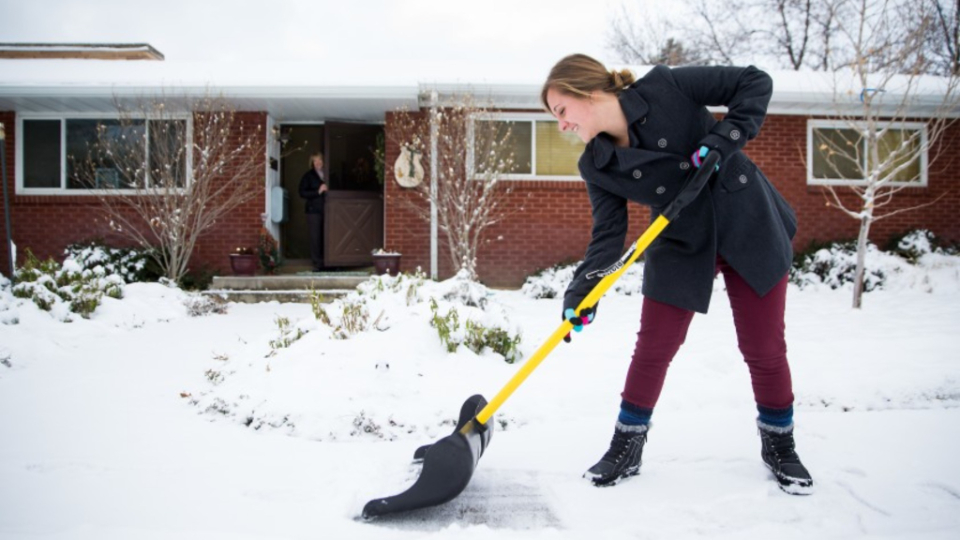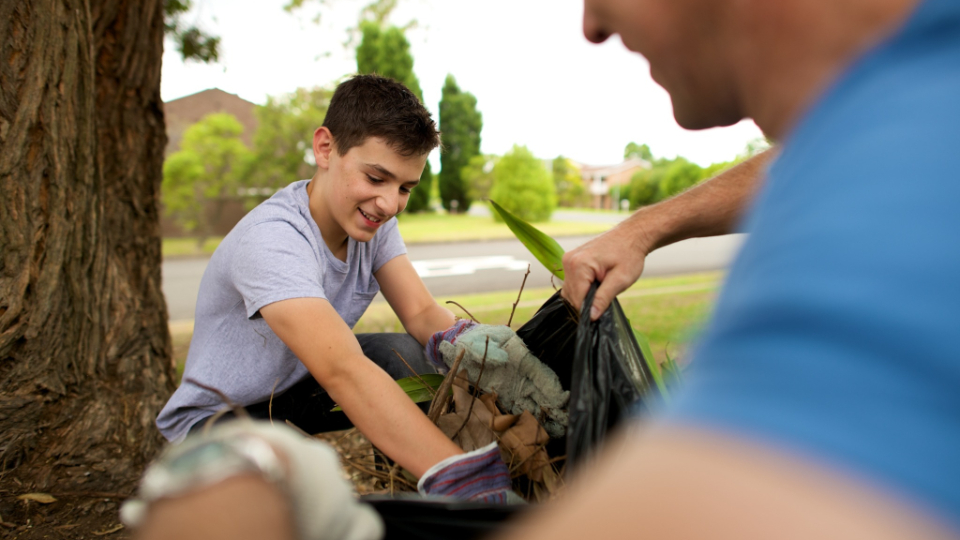
Loneliness-1.jpg
A young woman clears off a neighbor’s walk following a snowstorm. A BYU-partnered study reveals that people often overcome loneliness by providing small acts of kindness around their neighborhoods. Photo by Jaren S. Wilkey, courtesy of Church News.All rights reserved.This story appears here courtesy of TheChurchNews.com. It is not for use by other media.
By Jason Swensen, Church News
Loneliness — it’s a mental health condition numbered among the many painful consequences of the ongoing COVID-19 pandemic.
A person’s earnest efforts to maintain social distancing to prevent the spread of COVID-19 might simultaneously result in becoming isolated from even close neighbors and, in Latter-day Saint units, trusted fellow ward members and leaders.
But while the past several months have been defined by quarantines and shelter-in-place directives, many are also discovering — or rediscovering — the mental boost that comes from performing small acts of kindness for neighbors.
Remember the connection you felt when a neighbor cleared your driveway following an evening storm? Maybe an unexpected text or encouraging email helped you endure a trial.
Now shift from kindness “beneficiary” to “benefactor.” You can also likely recall the elation felt while lifting others with a seemingly small act of service.
A study involving researchers at Brigham Young University found that performing small acts of kindness for neighbors can improve the mental health of the giver of service. Over a four-week period, the study tracked loneliness levels of participants before and after providing small acts of kindness to everyday folks in their neighborhood.
Even seemingly small “service gifts” — dropping off a plate of cookies or helping a neighbor locate a reliable doctor — typically lowered levels of loneliness and social isolation in the service provider.
“I get tons of people asking me what we can do during the pandemic to try to stay connected and stave off loneliness,” said BYU psychology professor Julianne Holt-Lunstad, who co-led the project, in a school news release.
“Conducting this experiment during pandemic conditions — which we didn’t originally plan — we found that people can experience significant reductions in loneliness even in tough times just by doing things that are easy, free and require no training to help the people around them.”
Holt-Lunstad and her fellow researchers partnered with Nextdoor, a company that promotes fostering connections in neighborhoods, to track changes in loneliness after people served their neighbors in COVID-19-safe ways as part of the Nextdoor KIND Challenge.

Loneliness-2.jpeg
A young man participates in a neighborhood cleaning project. Researchers at BYU have found that providing small acts of kindness for neighbors can boost a person’s mental health, even during the ongoing pandemic.© 2021 by Intellectual Reserve, Inc. All rights reserved.The study involved participants from the U.S., U.K. and Australia.
The results are telling.
About 10% of study participants were classified as “severely lonely” at the beginning of the experiment. That number dropped to 5% within a month among participants randomly assigned to do small acts of kindness in their neighborhood, the BYU release reported.
The study also revealed the benefits of simply getting to know one’s neighbors. Among all study participants, those who knew at least six neighbors reported less loneliness, depression, anxiety and COVID-19-related financial concerns. Becoming acquainted with the families that live along your street or in your apartment building can be a mental health boost.
Meanwhile, those who knew more than six neighbors experienced even greater mental health benefits, according to the BYU release.
The study also offers insight on the various forms of “small acts of kindness” that can boost the provider’s mental health. “Tangible” support includes doing things such as clearing snowy driveways or running errands for a homebound neighbor. But providing “informational” acts to neighbors, such as recommending a reliable plumber or a trusted dentist, can also remedy feelings of loneliness.
“Loneliness is usually pretty stable, and we often think it’s going to be really close friends or family that might make the biggest difference,” said Holt-Lunstad. “The fact that something as simple as saying hello to your neighbor could make the difference is significant, especially during a pandemic where you might expect loneliness to increase.”
During a pandemic, “our neighbors may be some of the few people we can have face-to-face contact with,” added Holt-Lunstad. But even in normal times, neighbors are important because they share the same community. Connections bring about feelings of oneness and security.
The term “neighbor” carries deep significance for Latter-day Saints. The Lord’s two great commandments are to love God and to love one’s neighbor.
Church members ministering to their neighbors — in all its many forms — already know well the affirming warmth and unity felt while performing small acts of kindness for those around us.
“A hallmark of the Lord’s true and living Church will always be an organized, directed effort to minister to individual children of God and their families,” taught President Russell M. Nelson. “Because it is His Church, we as His servants will minister to the one, just as He did. We will minister in His name, with His power and authority, and with His loving-kindness.”
Ultimately, the findings of the BYU-partnered study aren’t really surprising for anyone striving to turn mere neighbors into friends.
“It’s what we’ve been taught our entire lives. … Be kind. Look out for others,” said Holt-Lunstad. “Now we have scientific evidence that shows when we do these things for others, this can also lead to improvements in ourselves.”
Copyright 2020 Deseret News Publishing Company